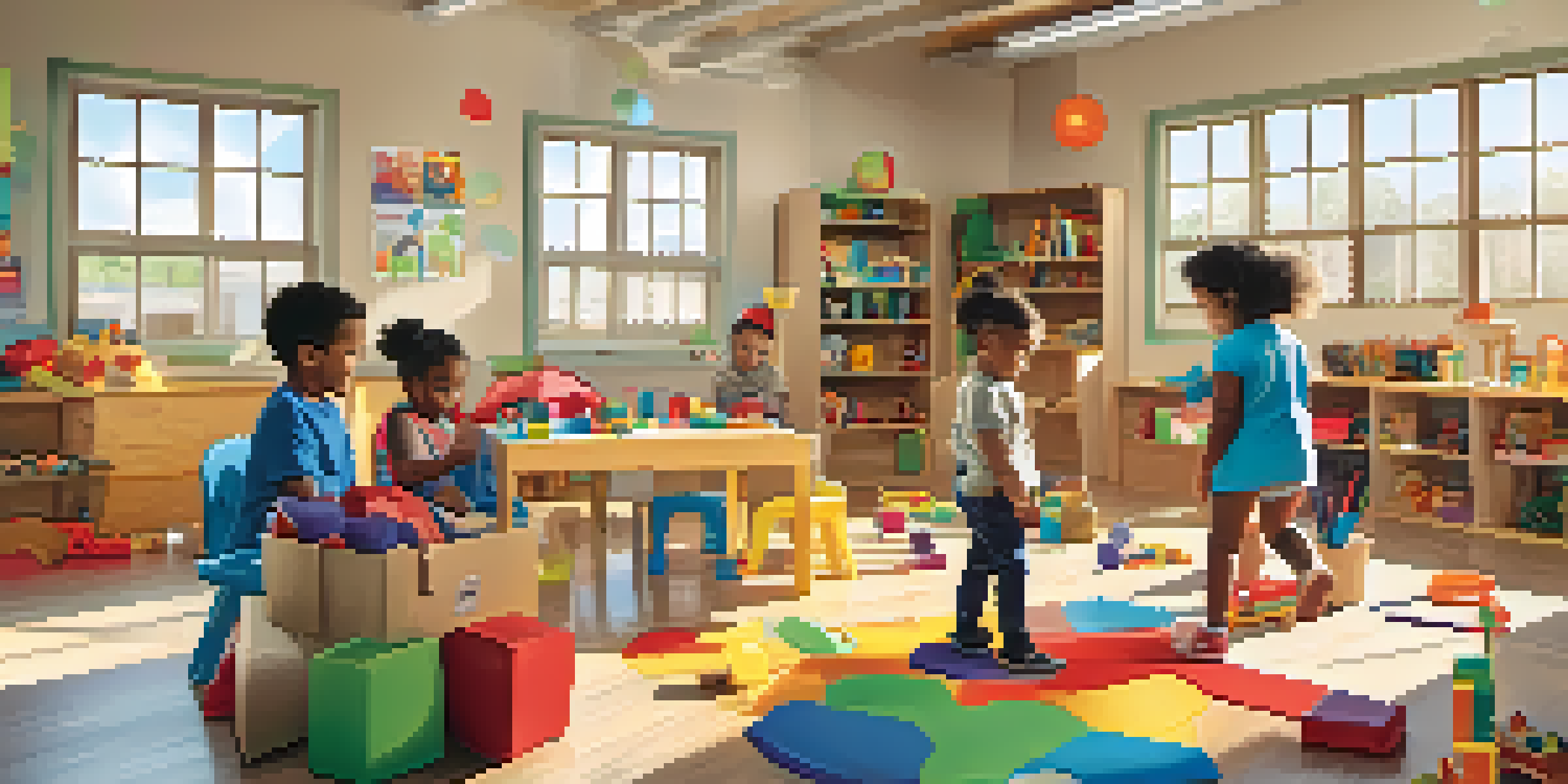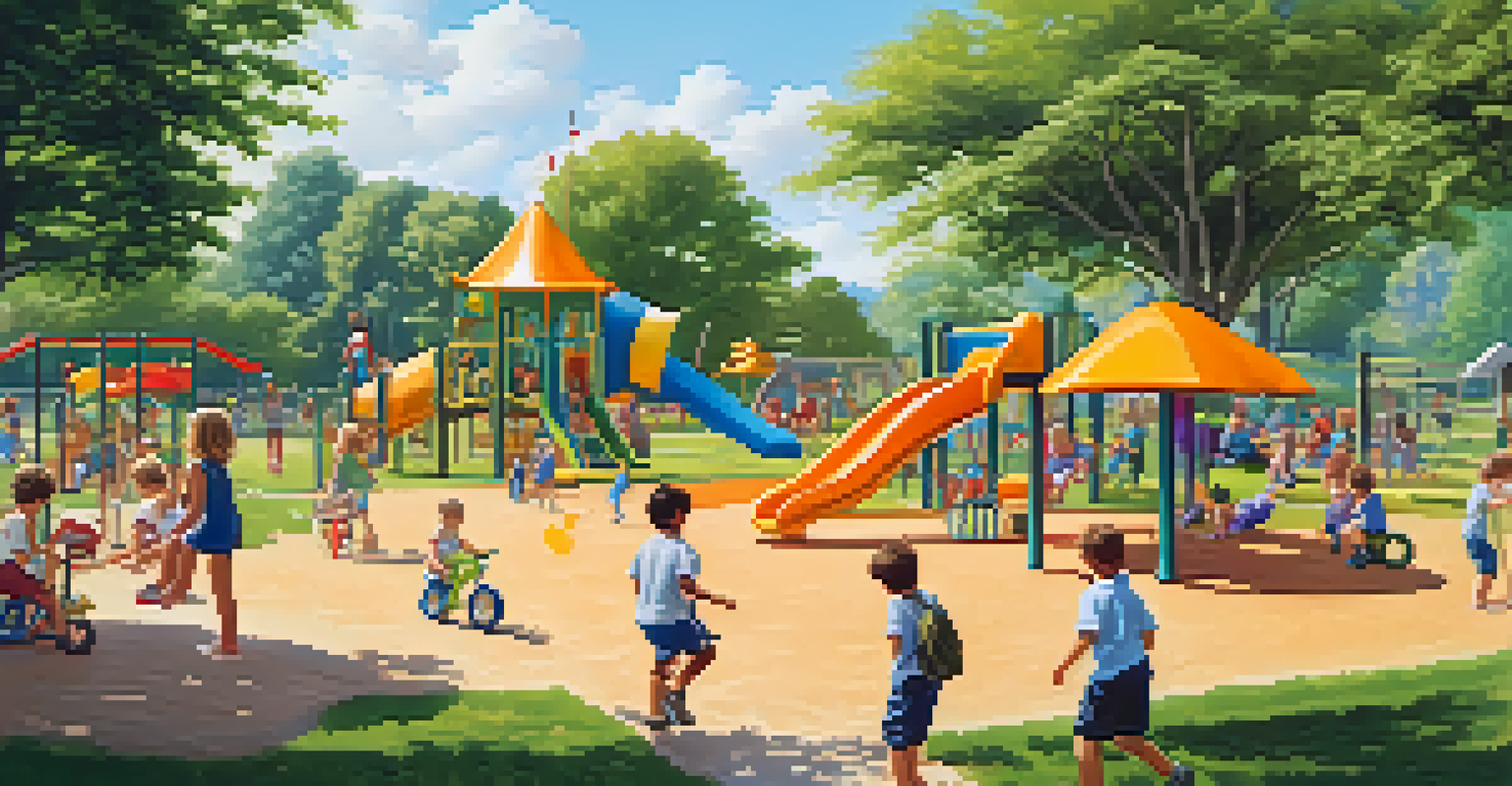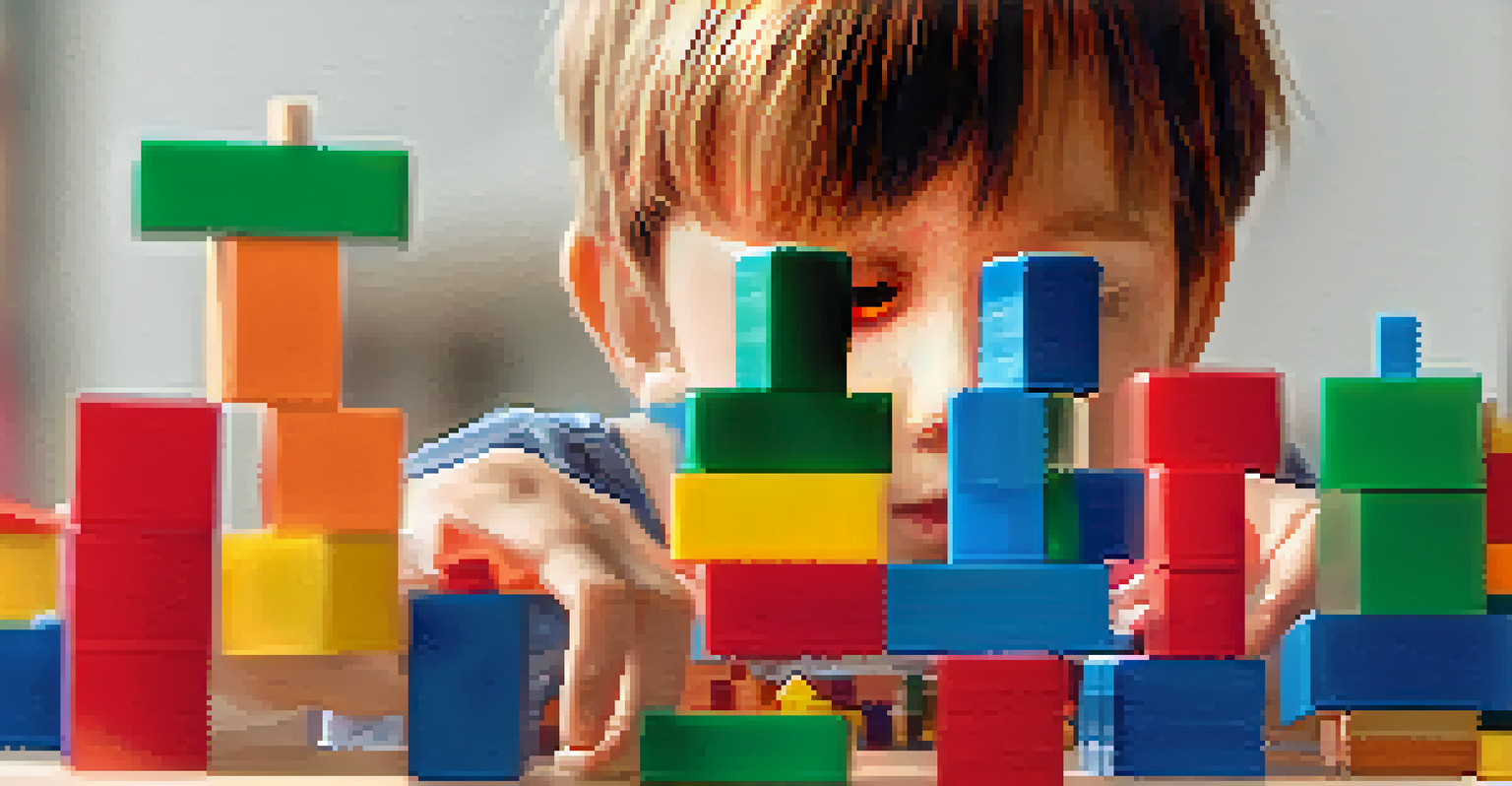The Evolution of Learning Through Play in Education Systems

Understanding Play-Based Learning in Education
Play-based learning is an educational approach that uses play as a vehicle for children to engage with their environment. This method encourages exploration, creativity, and social interaction, making learning enjoyable and effective. By incorporating play, educators help children develop critical thinking skills and emotional intelligence, laying a solid foundation for lifelong learning.
Play is the highest form of research.
Historically, play was often viewed as a distraction from formal education, but this perspective has shifted significantly. Research now highlights that play is not merely a break from learning, but a fundamental part of the learning process itself. In essence, play serves as a natural way for children to make sense of the world around them, enhancing their cognitive development.
Additionally, play-based learning caters to various learning styles, making it accessible for all children. Whether through structured games or free play, children are given the opportunity to explore concepts at their own pace. This inclusivity fosters a love for learning, encouraging students to become active participants in their education.
Historical Roots of Learning Through Play
The concept of learning through play dates back to ancient civilizations, where play was often integrated into daily life. In many cultures, storytelling and games were essential components of teaching, reflecting the values and knowledge of the community. This early recognition of play's importance laid the groundwork for its eventual incorporation into formal education.

As education systems evolved, particularly during the Industrial Revolution, the focus shifted towards standardized testing and rote memorization. Unfortunately, this often stifled creativity and critical thinking skills. However, educators and philosophers like Friedrich Froebel and Maria Montessori began advocating for a return to play-based learning, emphasizing its role in holistic development.
Play Enhances Learning Engagement
Play-based learning encourages exploration and creativity, making education enjoyable and effective for children.
Their ideas gained traction over time, leading to a resurgence of interest in play as a legitimate educational tool. This historical evolution demonstrates that while educational philosophies may change, the fundamental need for play in learning remains constant.
Play-Based Learning in Early Childhood Education
In early childhood education, play-based learning is especially prevalent and effective. Young children thrive in environments where they can explore, experiment, and interact with their peers. This approach not only nurtures their natural curiosity but also supports their social and emotional development.
The greatest gifts you can give your children are the roots of responsibility and the wings of independence.
For instance, activities like role-playing or building with blocks help children develop communication skills and problem-solving abilities. These playful interactions allow them to practice real-life scenarios in a safe and supportive setting. As they navigate these experiences, they learn to cooperate, negotiate, and empathize with others.
Moreover, research supports the notion that children who engage in play-based learning show improved academic outcomes later on. By fostering a love for learning early in life, educators set the stage for continued success as children progress through their educational journey.
The Role of Technology in Play-Based Learning
As technology continues to evolve, it's important to explore its role in play-based learning. Interactive apps, educational games, and virtual reality experiences can enhance traditional play by providing new avenues for exploration. These tools can engage children in ways that were previously unimaginable, fostering creativity and critical thinking.
However, it's crucial to strike a balance between screen time and hands-on play. While technology can offer valuable educational experiences, it shouldn't replace the tactile, social interactions that come from traditional play. Finding this equilibrium ensures that children benefit from both digital and physical forms of play.
Historical Shift in Learning Perspectives
The recognition of play as a vital part of education has evolved from being seen as a distraction to an essential method for cognitive development.
Educators and parents must work together to create environments that promote healthy technology use. By integrating technology thoughtfully, we can enrich play-based learning and prepare children for a future where digital literacy is essential.
Benefits of Play-Based Learning for Social Skills
One of the most significant benefits of play-based learning is its impact on social skills. When children engage in play, they learn to communicate, collaborate, and resolve conflicts with their peers. These interactions are essential for building relationships and developing emotional intelligence.
For example, during group play, children must negotiate rules, share resources, and take turns. These experiences teach them valuable lessons in empathy and cooperation, which are critical for success in both personal and professional relationships. As they navigate these social dynamics, they also gain confidence and develop a sense of belonging.
Furthermore, play-based learning creates a supportive environment where children feel safe to express themselves. This nurturing atmosphere fosters resilience, as children learn to cope with challenges and setbacks through play. Ultimately, these skills will serve them well throughout their lives.
Challenges in Implementing Play-Based Learning
Despite its many benefits, implementing play-based learning in educational systems can present challenges. One significant hurdle is the pressure on educators to meet standardized testing requirements. This focus on measurable outcomes can lead to a reluctance to embrace play as a legitimate form of learning.
Additionally, some educators may lack the training or resources to effectively incorporate play into their teaching methods. Without proper support, they may feel overwhelmed or unsure of how to balance play with traditional curriculum goals. This gap in training can hinder the successful implementation of play-based learning.
Social Skills Development Through Play
Engaging in play helps children develop crucial social skills such as communication, cooperation, and emotional intelligence.
To overcome these challenges, schools and policymakers must prioritize professional development and advocate for a more flexible approach to education. By recognizing play as a valuable tool for learning, we can create a more inclusive and engaging educational environment for all students.
The Future of Play in Education Systems
As we look to the future, the role of play in education systems is likely to evolve further. With an increasing emphasis on social-emotional learning and critical thinking, play-based approaches may become even more integral to curricula. Educators are recognizing that fostering creativity and collaboration is essential for preparing students for an ever-changing world.
Moreover, the rise of project-based learning and experiential education aligns closely with the principles of play-based learning. These methods encourage students to take ownership of their learning through hands-on experiences and real-world applications. As such, play's role in education may continue to expand, bridging the gap between academic knowledge and practical skills.

In conclusion, the evolution of learning through play in education systems reflects a growing understanding of its importance. By embracing the power of play, we can create a more holistic and effective learning experience that nurtures the whole child, paving the way for future generations to thrive.